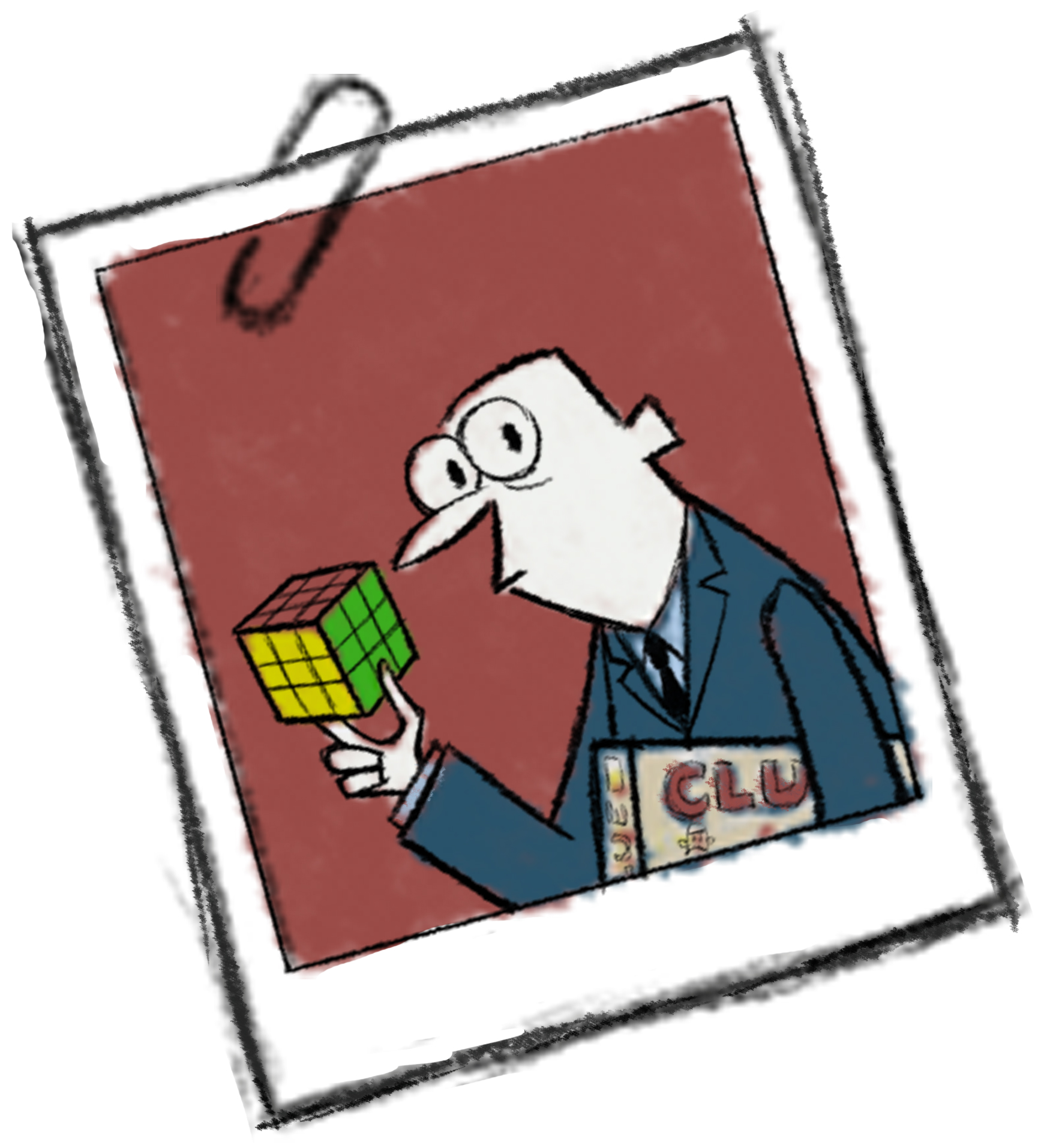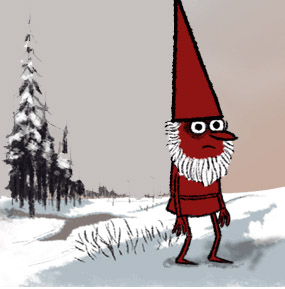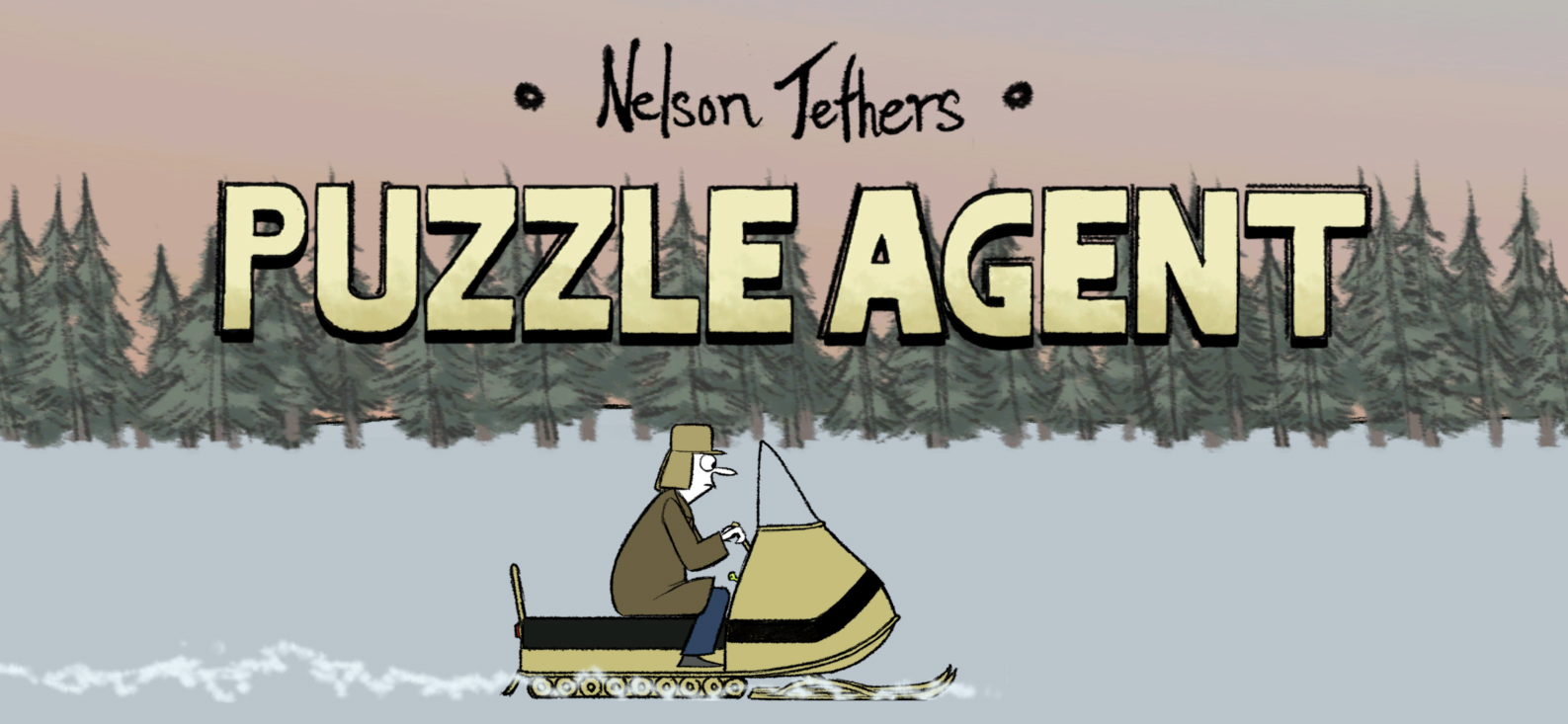Nelson Tethers: Puzzle Agent came out! Yesterday! And I wrote a review of it!
The first game of Telltale's new Pilot programme in which new franchises are put to the test before a full series is planned, Nelson Tethers: Puzzle Agent is something of a departure for Telltale. Replacing the usual puzzles are ... well, puzzles. This time, though, they're more of the puzzle book brainteaster variety delivered in a formula that will be familiar to anyone who has played any of the Professor Layton games on the Nintendo DS.

Working with cartoonist and former-employee Graham Annable, Telltale have done a fine job of capturing his style, both visually with its sketchbook effect and stilted animation and atmospherically, incorporating some of the awkward pauses and off-kilter mystery that characterises the Grickle-verse. As brilliant as the latest series of Sam and Max has been so far, it was a welcome change to see Telltale working with a more subdued, subtle style of humour dictated by tone and mood more than words. The voice acting is odd, in a good way, presenting its characters in just the right kind of eerie light, helped by the admirably mysterious soundtrack.
The one exception to the weirdness is FBI Agent Nelson Tethers himself, presented as a likeably diligent, straight-laced protagonist. He guides us through an intriguing tale set in the isolated town on Scoggins, where something is afoot at the eraser factory. Just what that is will have to wait, but players expecting a self-contained plot for this pilot may be disappointed by the end: this is clearly written as the start of a much larger story, in common with most of Telltale's recent titles.
Puzzle Agent makes no secret of drawing inspiration from the Professor Layton titles and it certainly presents similar puzzle-happy gameplay. In comparison I did find it lacking some areas, however. While the cult-thriller ambience of Puzzle Agent makes it seem in some ways a more grown-up game than Layton, the puzzles themselves were hardly as much challenge, with the solutions often presenting themselves to me immediately even when Nelson described them as "tricky". Neither did they seem as imaginitive, too many being glorified jigsaws and too few requiring the ingenious use of logic that can make puzzle-solving such a joy.

While not automatically a negative, the game seems made for handheld platforms with its big buttons and wibbly touch-screen effect whenever you click anywhere (not to mention its lack of display options). This makes it all the more surprising, then, that you cannot draw on the screen to make notes, a much welcome feature in the Layton series for when puzzles demand that you do some working out or have to keep a few things in your head at once. I imagine this could get annoying if you were on the move and unable to take notes, though not as annoying as two occasions game where I had to do the exact same puzzle twice for story reasons.
Puzzle Agent is usually careful to set out all of the parameters and rules for each puzzle but sometimes it can come across as slightly ambiguous and I would be forced to assume I was interpreting it correctly. In the case of one particular puzzle, I put in what I (and two other people I have come across so far) believed to be a valid solution, but the game would not accept it simply because there had been some crucial details left out of the rules.
It's frustrating and slightly worrying to see mistakes of these kind being made. If Telltale is going to continue to make their episodic model work, that model must clearly include adequate time for proper testing. The types of problems above are the sort of ones that I think would easily be picked up with a decent amount of testing and so I can either conclude that not enough was done or there wasn't enough time to fix the issues raised. Either one is bad for episodic gaming's reputation.
Despite my reservations, Puzzle Agent certainly drew me into its world, I genuinely think it's a project worth pursuing and I wish it success. I want to see the story, which ends rather abruptly, brought to a satisfying conclusion. I want to see Telltale get better with each iteration, as they have proven to be capable of many times before. Mostly, though, I want to see the puzzles given the attention that they deserve so that next time we see Mr. Tethers, I can recommend him without qualification.
Peter "SurplusGamer" Silk once used 497 pieces to solve a 500 piece puzzle. He was never seen again.
